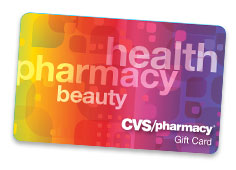With companies focused on providing quality health incentives and rewards to their employees, a pair of wellness managers recently discussed the success they've found at their respective companies.
In late February, GiftCard Partners and CVS Pharmacy® hosted "The Wellness Incentive Continuum & Program Adoption Life Cycle" webinar featuring Georgette Kores, global wellness lead for World Fuel Services (WFS), and Susan Tufts, wellness manager at L.L. Bean.
Health insurance and employee wellness expert Denise Holland served as moderator for the webinar, which was organized in partnership with Employer Healthcare & Benefits Congress.
The wellness aficionados tackled a variety of topics, including how the industry has changed over the years and what types of rewards and incentives they've introduced to their respective programs.
Here is a recap of some of the major talking points from the session:
Getting Started
Tufts said she joined L.L. Bean in 1985, three years after the company launched its wellness program.
"We certainly did incentives a lot differently back in the early '80s. Certainly, a t-shirt was a big seller and I would say they still are today," Tufts said. "However, we’re much more comprehensive. We’re tied to the business, our health and benefits plans now with our incentives, and we’ve seen really good results."
While L.L. Bean's wellness program has been in existence for more than three decades, World Fuel Services' is still relatively new.
What started out as a simple fitness challenge in 2009, Kores said, eventually morphed into a multi-national program called "Wellness for Life," which focuses on emotional, financial, physical, and social wellbeing.
"We incentivize participation for employees in wellness activities," she said, "This year, we've (introduced) an incentive that’s a little bit more traditional to employees and their spouses that are on our medical plan for completion of the HRA (health risk assessment) and biometric screenings."
Want to watch "The Wellness Incentive Continuum & Program Adoption Life Cycle" webcast?
• Download our webcast recording •
Rise In Program Popularity
Kores says WFS had to assess its employee population before implementing an incentive program.
The work population runs the gamut, as they have in-house call center reps to truck drivers working internationally, and the average employee is a 45-year-old man, according to Kores.
Since the introduction of incentives, the company has seen greater participation in all of its initiatives.
 "I think that people see this new addition as the start of us integrating more with the benefits plan in the US just as a stronger tie to the value-add the wellness program provides," Kores said. "(The increased participation) could be tied to the incentives. I also think it’s because people are getting used to the culture of wellbeing that we’re building here."
"I think that people see this new addition as the start of us integrating more with the benefits plan in the US just as a stronger tie to the value-add the wellness program provides," Kores said. "(The increased participation) could be tied to the incentives. I also think it’s because people are getting used to the culture of wellbeing that we’re building here."
Meanwhile, Tufts said she's attended many conferences to get input from others from around the wellness space.
L.L. Bean, which has about 5,000 employees nationwide, has "a strong group of people who are committed to their health and wellbeing and to the outdoors, and they would make the healthy decisions whether there was an incentive or not," Tufts said.
She also noted that not everyone at the company is health conscious.
"There are a lot of people that being healthy is a struggle," Tufts said. "It doesn’t come natural to them, making the choice to go for a walk instead of sitting down and having that extra donut. (It's) a challenge. I’ve found over my career here it’s important not to develop programs based on your personal bias."
When Tufts hired on with L.L. Bean, the average age for employees was 25, but nowadays the typical worker is 50 years old.
"What might have appealed to our population 30 years ago is a little bit different than what we might focus on today, just like the classes and programs we offer have a slightly different bend," she said.
Incentives Abound
When it comes to the health incentive, Tufts said it's tied to the company's benefit plan and employees that choose to participate pay a lower percentage of their healthcare costs. According to Tufts, about 93 percent of L.L. Bean's employees and their spouses currently partake in the program.
"The other thing I would say about that program is it reaches our employees not just in Maine, but employees across the country at all of our retail stores," Tufts said. "The incentive program and the cost sharing of that has definitely encouraged people to participate in the program."
Meanwhile, about 95 percent of WFS workers are enrolled in the company's benefits plan, Kores noted.
Incentives given out at L.L. Bean really haven't mattered much, as everything from t-shirts to pens have been well received by the workforce, Tufts recalled.
"The things that have worked really well are giving people an extra day off, or a day off with pay. I remember somebody saying 'cash is king' and certainly people will do anything for a little extra money or a little extra time off, but it doesn’t always have to be that," Tufts said.
"It can be anything. We have developed incentives that are a little more complex, but we also continue to do things that are just simple and fun."
At WFS, Kores said she's tailored and gamified incentives for certain populations that "speak a little bit more to the culture that I'm trying to reach."
"For our Asia region, they really love games and...to get an incentive, we’ll make it a game, a fun lottery or trivia thing and we get a lot of participation in that," she said.
However, the company has to take a varied approach to incentivization when working with other employee groups.
"Communicating incentives to our truck driver population is different than how we’re going to communicate it to our office population," Kores said, "Or even what they receive because for a driver we’re not going to be incentivizing them necessarily with a day off, which is very popular and very well received, but giving them something else that’s a good value-add is important, too."
Similarly to L.L. Bean, WFS has found pens are popular incentives, but polos and t-shirts have proven to be favored most by employees, Kores said.
The company doesn't give out cash incentives as much as other rewards to avoid potential legal issues, she added.
Aside from cash, WFS has distributed Target gift cards in the past, while L.L. Bean has given out company gift cards and also grocery store brands.
Looking to expand your company's health and wellness rewards program? Consider buying CVS Pharmacy gift cards in bulk to get a volume discount.
Editor's note: We'll have more information from the webinar coming soon. To keep up to speed, subscribe to the GiftCard Partners blog to receive daily, weekly or monthly updates.










